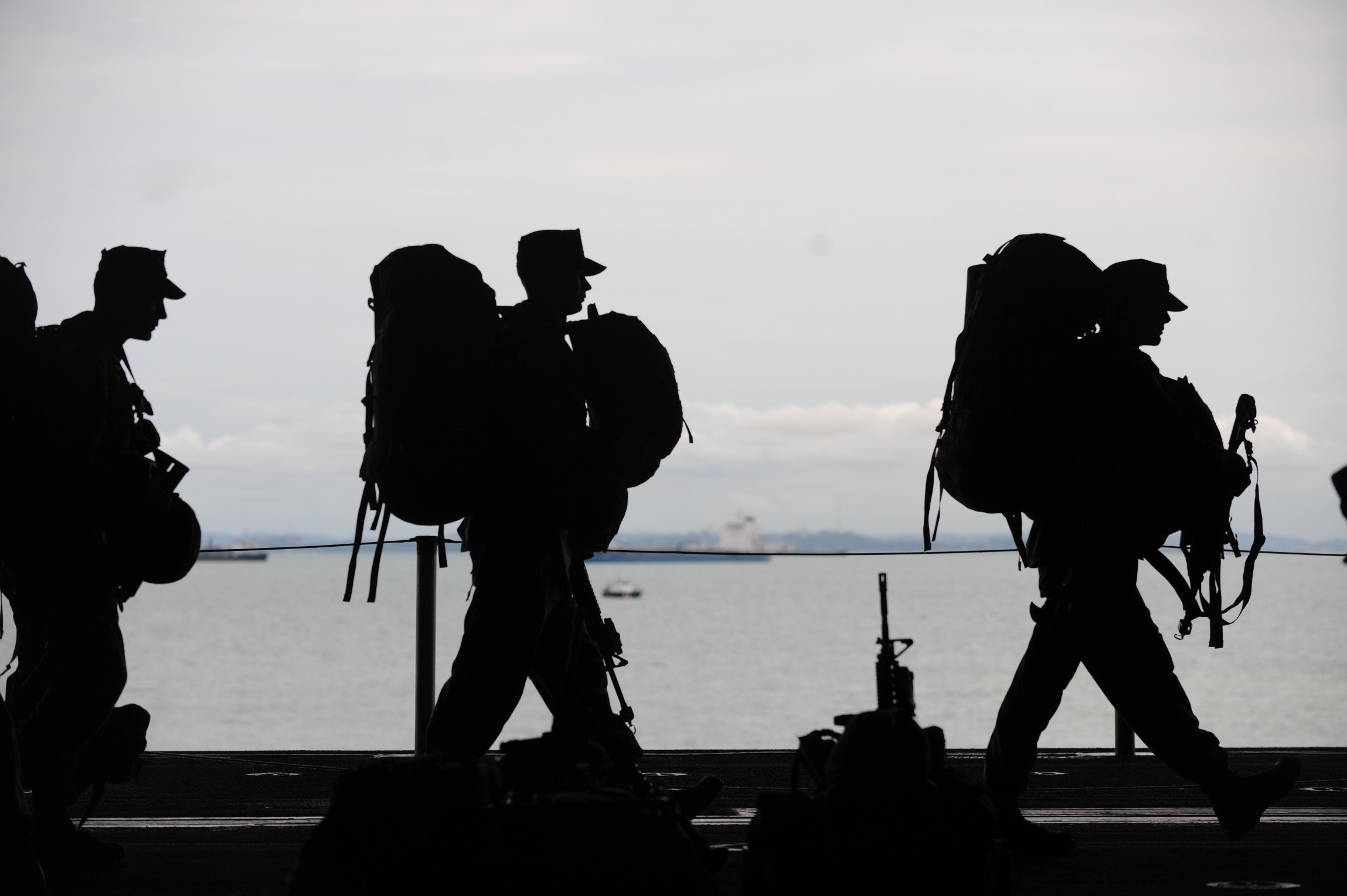This Sunday was Veterans Day, a time to honor those who have selflessly served our country. While our veterans are front and center on this day, they have been missing from a critical conversation over the past couple of years.
By this point, most people have heard of CTE (chronic traumatic encephalopathy). The issue came to light prominently last year following a study from the CTE Center at Boston University that found 110 out of 111 NFL brains had CTE. This put the disease in the spotlight – for athletes. We revere our athletes and need to protect them. But what about our nation’s heroes – the real stars on the field – our veterans?
Currently, more than 250,000 military personnel and veterans have chronic neurological symptoms, and about 20 active-duty service members and veterans die by suicide each day. Years ago, we learned the brains of soldiers who served in Afghanistan showed similar signs to professional athletes who had a history of head trauma. Symptoms of CTE include: difficulty thinking, impulsive behavior, irritability, aggression, depression, short-term memory loss, emotional instability, substance abuse and more.
These men and women put their country first and their lives on the line. Yet, they come home to long wait times at VA hospitals and astronomical costs, paying an average of $8,300 for their first year of PTSD (post-traumatic stress disorder) treatment. What’s worse is many military personnel experience mental health problems while they are on active duty. This causes them to act out before they can get help. They get dishonorably discharged, which leaves them with no healthcare help when they return home. We owe it to our veterans to provide better mental health care.
One problem is there is not an effective way to know how sick people are, or the severity of their head injuries, until it’s too late. Fortunately, progress is being made to develop an objective, safe and non-invasive way to diagnose concussions through the blood and prevent future brain damage.
Why is a blood test more effective for detecting and treating head trauma in our soldiers?
Head CT scans are used in about four million traumatic brain injury evaluations per year, but unfortunately, the CT scan delivers a large amount of radiation to the patient. In fact, a typical CT scan of the head delivers up to 200 times more radiation than a chest x-ray. This large amount of radiation poses a significant hazard; several scientific studies report CT scans are associated with an increased risk for brain tumors. Head CT scans are often used to evaluate patients, even though the CT scan rarely provides useful information for most patients with traumatic brain injuries. The CT scan is read as normal in more than 90 percent of patients with concussion and does not provide any benefit to the patient or doctor. Our veterans have already been through enough neurological trauma. Do we really want to risk more damage?
Traumatic brain injuries place military personnel at risk for chronic neurological and psychological symptoms. Repetitive traumatic brain injuries can lead to CTE, and many individuals with CTE are also diagnosed with PTSD. Experiencing three or more traumatic brain injuries increases the risk of cognitive impairments fivefold and memory problems threefold, even in young individuals. With a simple blood test, we have the potential to detect these neurological issues in our soldiers before symptoms present.
What’s even more surprising is traumatic brain injuries aren’t exclusive to hits directly to the head. New research finds moderate blast exposure can significantly alter proteins in the brain that are predictive of neurological impairment. This is critical to our most recently deployed military members (Operation Enduring Freedom and Operation Iraq Freedom) because blast exposure is a signature injury for these individuals. At least 30 percent of these soldiers had a mild traumatic brain injury as a result of blast exposure, which means they are at greater risk to have neurological symptoms.
The good news is technology is advancing to the point today where we now have the ability to see things in our blood we couldn’t see before. For years, the National Institutes of Health, or NIH, has been studying the connection between traumatic brain injuries and the biomarkers in soldiers’ blood. We’ve learned through credible, third-party scientific and peer-reviewed studies there’s a link between the number of traumatic brain injuries and the severity of PTSD.
Now we have a breakthrough for treating – and preventing – neurological symptoms for our veterans. For example, the FDA approved the Banyan Brain Trauma Indicator, a blood test to detect key proteins in our blood (e.g., GFAP and UCHL1) indicative of brain injury. The test rules out the necessity of a CT scan if an individual does not have elevated levels of these proteins.
While the Banyan test is a monumental achievement, there’s still much work to do. Researchers at NIH and other neurological research centers are studying the potential for a blood-based test that doesn’t just rule out the need for a CT scan, but actually is a diagnostic for concussion.
Our veterans are brave men and women who put their bodies and mental well-being on the front line for us. We must provide a better solution to monitor their brain health – before it’s too late and the damage is already done.
Kevin Hrusovsky is founder and chairman of Powering Precision Health.


